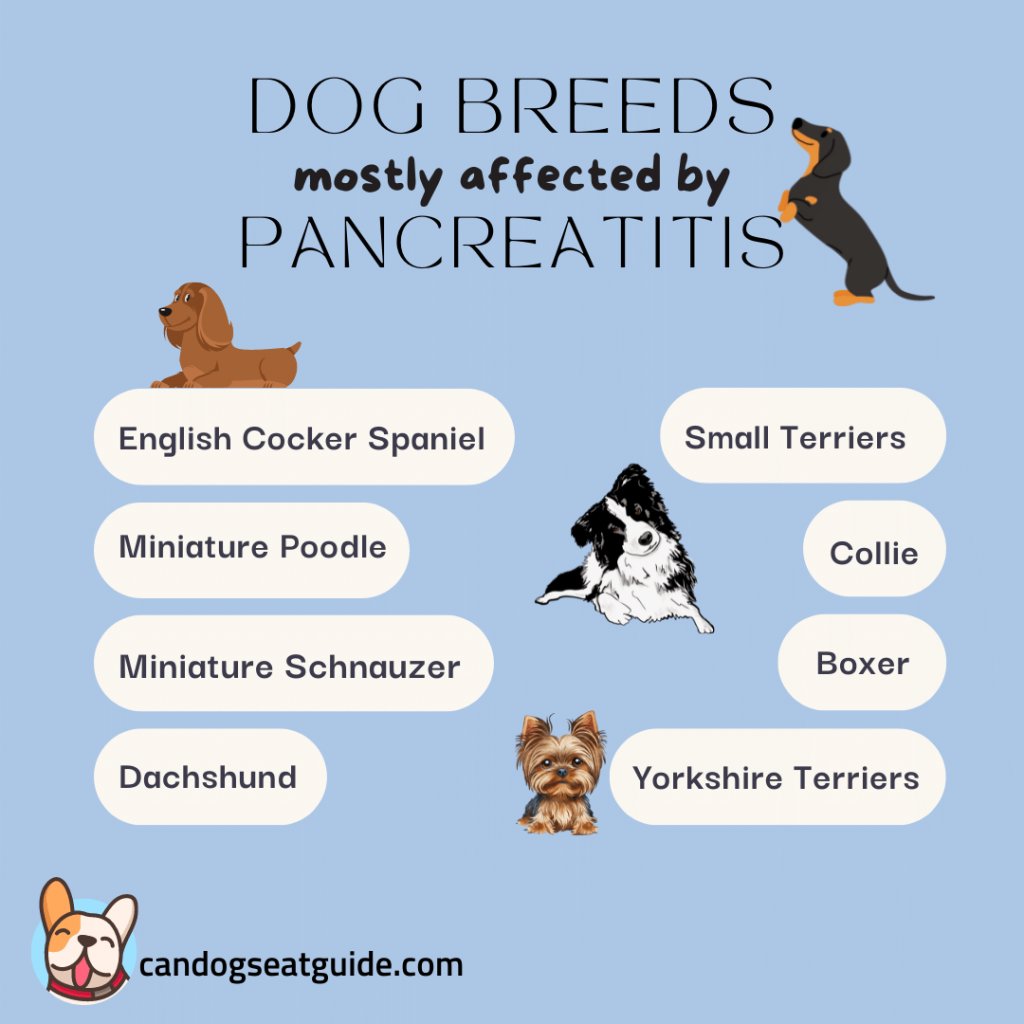There are many times when out of a sudden your dog can start vomiting or have diarrhea. It can be because of food, it can be because your doggo got some flu, or can be something more serious like pancreatitis.
Pancreatitis in dogs is a common illness, no matter their age. There are many reasons for it. You can find this and much more if you keep reading.
What Is Pancreatitis
Pancreatitis is a health issue that occurs when the pancreas is inflamed. It happens to humans but also to our four-legged friends – dogs. Pancreatitis is dangerous for a dog’s health that’s why it should be checked by a veterinarian as quickly as possible.
Sometimes the symptoms can be mistaken for something less serious like just normal diarrhea because of a change in food or you know that some days dogs eat less, but actually, their appetite can be decreased because of pancreatitis and it is very serious.

What is the function of the pancreas?
The pancreas is responsible for the production of hormones and digestive enzymes. The hormones produced are insulin and glucagon which regulate the blood sugar level. The function of digestive enzymes is to digest and break apart proteins, complex carbs, and triglycerides (a type of fats).
Pancreatitis can affect some of the other systems in the dog’s body.
Types of Pancreatitis In Dogs
There are two types of pancreatitis that can affect dogs:
- acute, and
- chronic.
The most common type is acute pancreatitis and it occurs suddenly characterized by severe symptoms.
Both types can have mild or severe symptoms but chronic pancreatitis mostly is going along with mild signs. Chronic pancreatitis in dogs builds up over a long period before showing any signs. Or it can be reoccurring acute pancreatitis.
Causes of Pancreatitis
The most common reason for pancreatitis is still undefined. In many cases, vets can’t understand why the dog had gotten this health issue.
But sometimes because of foods rich in fats dogs can get acute pancreatitis. Another reason is when we are not being responsible parents and because of puppy eyes, we give a good amount of table scraps to our four-legged besties.
But there is a long list of possible reasons why dogs get pancreatitis. Let’s have a look at it:
- food that is rich in fats – dog food and human food
- the dog is obese
- the dog is having endocrine problems like hypothyroidism
- if your dog loves to eat everything from everywhere
- genetic predisposition (more for it down below)
- medicine
Signs of Pancreatitis
As you got to know there are two types of pancreatitis – acute and chronic. As with every other chronic illness, there are symptoms that are often coming but they usually are mild, the same is the situation with chronic pancreatitis.
Acute pancreatitis is more often known for its severe symptoms.
Mild Signs
- decreased appetite;
- vomiting;
- lethargy;
- nausea.

Severe Signs
Severe symptoms include all mild ones plus:
- loss of appetite;
- abdominal pain;
- irregular heartbeat;
- severe dehydration;
- hunched back;
- fever;
- collapse;
- shock.
Dogs can fully recover from mild cases but severe pancreatitis is very difficult to be treated completely and in many cases, it can lead to death.
Diagnosing Pancreatitis in Dogs
Diagnosing pancreatitis in dogs is usually a difficult task as the symptoms can be mistaken for some other disease or a food reaction.
The most successful way of finding out about pancreatitis is by abdominal ultrasound. But then the pancreas should be abnormal enough so it can be seen by ultrasound.
There are some pancreatitis blood tests that usually veterinarians perform when they have high suspicion. You must know that these tests aren’t 100% accurate and there are cases where pancreatitis can’t be detected.
Your vet may perform an X-ray to see what is happening in the abdomen, it’s a must for dogs that are vomiting because with an X-ray they will check if there is some intestinal blockage because of a foreign body inside.
Treatment of Pancreatitis
There isn’t a specific treatment for pancreatitis, the main idea behind all of the treatments I will talk about now is to help the dog feel a bit better while inflammation gets better. The most targeted symptom during this process is of course the pain.
Let’s first see what treatment dogs with chronic pancreatitis can get. In this case, usually, dogs are treated at home with a proper diet, some supplements, and of course medicine if needed. But if the pancreatitis is chronic because of acute one that shows up from time to time, then for sure your dog won’t be treated at home.
Dogs that are having severe and acute pancreatitis need more comprehensive medical treatment. Dogs with acute pancreatitis often need a few weeks of treatment to get better. Their treatment may include antibiotics, antinausea medications, a medication that protects the stomach, a medication to control or stop the pain, intravenous fluid therapy, and electrolyte support. With all these medications dogs also are fed with nutritional support in a tube.
Recovery
Dogs with mild pancreatitis are most likely to recover fully while dogs with severe signs of pancreatitis in many cases die. But even if the dog recovers fully no matter if the disease was mild or severe, it can lead to other diseases like diabetes mellitus or a condition known as exocrine pancreatic insufficiency (EPI). EPI is characterized by an insufficient amount of enzymes being produced which leads to not proper food digestion.
After severe pancreatitis, the immune system of a dog is very weak. Even flu can lead to serious health problems.
List of Breeds That Are Mostly Affected By Pancreatitis
Some dog breeds are predisposed to pancreatitis.
Some dogs have problems with their high blood triglyceride levels and an example of a breed with this problem is the miniature schnauzer.

Another example is the English Cocker Spaniel. For this breed, immune-mediated diseases are seen more frequently and there are many cases where their immune systems attack the pancreas.
Wrapping Up!
Pancreatitis in dogs is a serious health condition that needs an immediate vet check. You shouldn’t think of any home remedies as pancreatitis can act very fast and cause a lot of damage.
There are two types of pancreatitis: acute and chronic. Usually, acute one has severe signs and needs immediate vet help. Some breeds are predisposed to pancreatitis but you can help them by not giving them food that is high in fat.
We hope you like the article ‘Pancreatitis in Dogs’ You can also check out our other articles.
Can Dogs Eat Turkey Bones? Are They Safe For Dogs?









